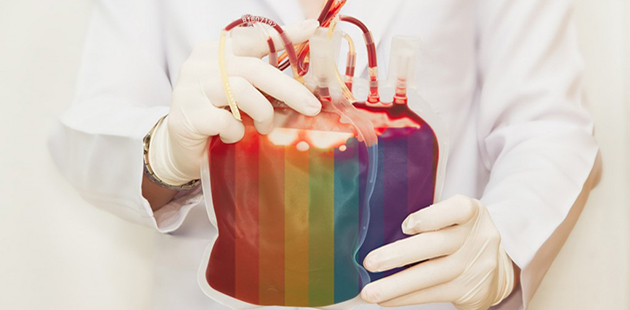 The Andrews Labor Government will call on the Federal Government and states and territories to review the ban on men who have sex with men from donating blood. Under the current restrictions for eligible blood donors, men who have had sex with men in the preceding 12 months are banned from donating blood.
The Andrews Labor Government will call on the Federal Government and states and territories to review the ban on men who have sex with men from donating blood. Under the current restrictions for eligible blood donors, men who have had sex with men in the preceding 12 months are banned from donating blood.
A review of this policy is due to be held in 2018, but the Minister for Health, Jill Hennessy, will formally request through the Council of Australian Governments Health Council that the review be brought forward to next year with the aim of reducing or removing this discriminatory policy.
“This policy doesn’t align with what we now know about how HIV is transmitted – it’s discriminatory and it’s outdated,” said Minister for Health, Jill Hennessy. “This ban stops a particular group of people from doing something that could save lives – strangers or people they love alike.”
An independent review was last conducted for the Australian Red Cross Blood Service in 2012. However, despite the review finding sufficient evidence to support the reduction of the deferral period without reducing safety, this was not accepted by the Therapeutic Goods Administration.
The Government believes this is a discriminatory policy – born out of the AIDS epidemic and subsequent panic of the 1980s – that no longer reflects current evidence or best practice on risk, nor community views. We know that the need for life saving blood donations never stops. Removing or reducing this ban will help more people save more lives.
“This ban is undeniably stigmatising. We need to ensure our health standards exist in the same 21st century world that we do,” said Minister for Equality, Martin Foley.
In 2000, Australia was the first country in the world to reduce restrictions on blood donations for men who have sex with men from five years to 12 months. Bringing the review forward presents another opportunity for Australia to lead the way once again and amend this discriminatory policy.
Currently, Spain, Portugal, Mexico, Russia, Ukraine, Poland, Italy, Chile, Argentina and South Korea have no deferral periods. Reviewing the science will ensure best practice policy is aligned with contemporary evidence on risk, given that all donations are screened and tested for a number of infectious blood borne diseases.
Advocates have backed the Victorian Government’s call for an official review of the gay blood donation ban to be brought forward, with Just.equal spokesperson and long-time advocate against the ban, Rodney Croome, saying: “The ban on gay blood donation is discriminatory, it stigmatises gay men as a risk to public health, and it reduces the supply of safe blood to those Australians who need it.”
“There needs to be an entirely new process for assessing potential blood donors that focusses on the risk associated with the donor’s sexual activity, not the gender of their sexual partner. I applaud the Victorian Government for raising this issue and call on the nation’s health ministers to get behind the initiative.”
